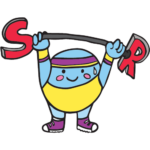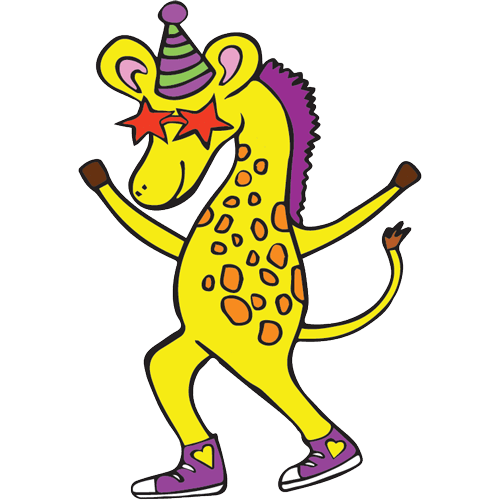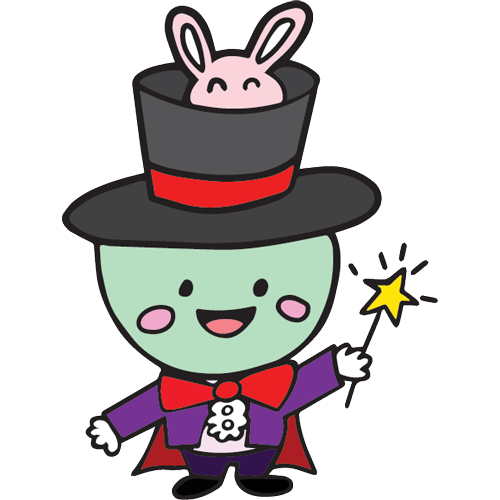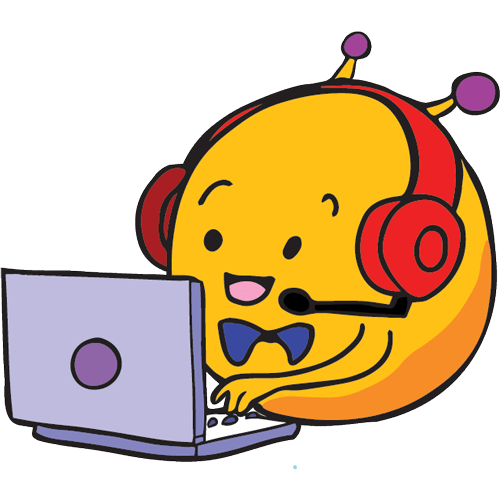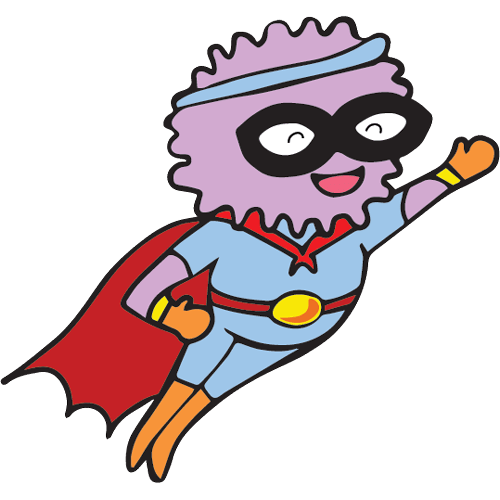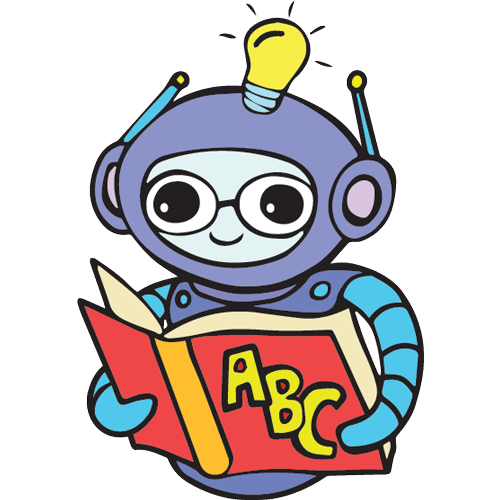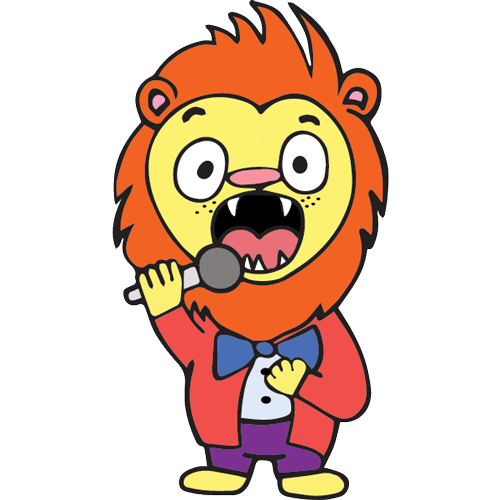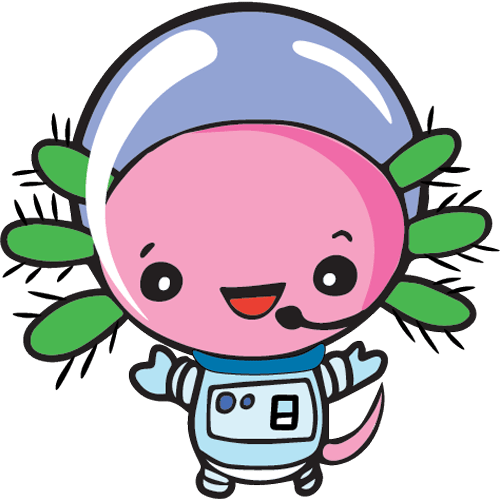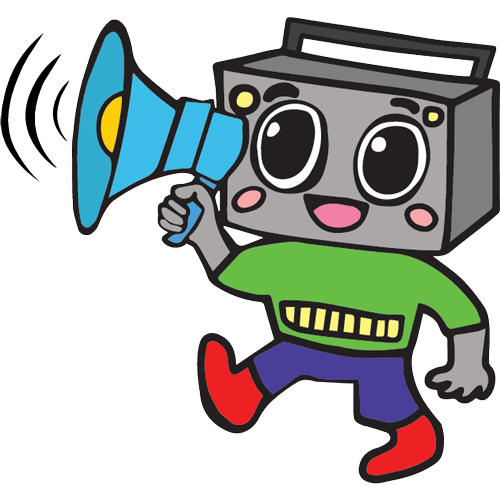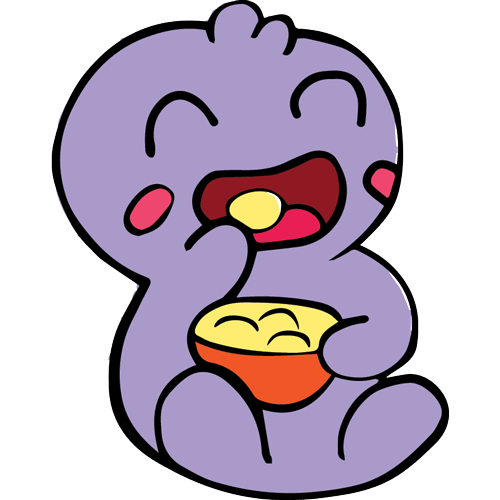FREE Speech Therapy Exercises and Resources for Children
Our exclusive collection of FREE pediatric speech-language pathology resources
Explore our exclusive collection of downloadable proprietary pediatric resources, specially designed by the Open Lines® team of expert licensed speech-language pathologists. These educational tools and speech therapy exercises were designed specifically to strengthen carepartner knowledge and to support the growth of every child’s speech, language, and cognitive-communication skills!
Vocabulary: How many words should my child have?
Developmental Red Flags: Signs your child may have a receptive-expressive language delay/disorder.
Typical age and development of skills for learning to talk
Tips for supporting language development at home
What articulation errors are developmentally appropriate?
Play Skills: Typical age and development of skills
Typical age and development of babbling skills from 0-12 months
Average age of speech sound acquisition
How much of my child’s speech am I meant to understand?
Visualize overall progress: Hierarchy of articulation skill development
Visualize articulation accuracy and progress
Word Lists: SH beginning of word
Word Lists: SH middle of word
Word Lists: SH end of word
Word Lists: CH beginning of word
Word Lists: CH middle of word
Word Lists: CH end of word
Word Lists: R beginning of word
Word Lists: R beginning of word
What’s the difference between voiced and voiceless sounds?
What is speech and what does an articulation delay look like?
What’s the difference between receptive, expressive, and pragmatic
language?
Got something to say but it’s not the right time?
Not sure how to ask for help? Try these tips!
Linking Language: Visual tool to help your child share their stories
How do children become bilingual?
Bilingualism: Know the Facts
What is language and what does a language delay look like?
Purchase Our Exclusive Speech Therapy Exercises for Articulation Therapy and Phonology Therapy!
Open Lines® is excited to offer our first exclusive product available now for purchase! All Open Lines® products are created by Doctoral level and expertly-trained speech-language pathologists.
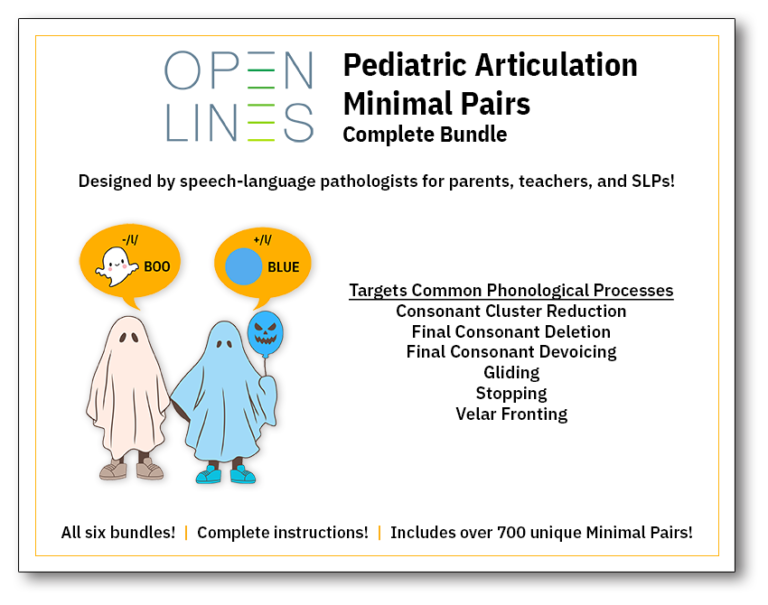
- Designed by the Open Lines® team of expert, licensed speech-language pathologists
- Sold individually or in a bundle
- Targets common articulation errors or phonological processes that occur in children with speech sound delays
- Exercises include suggested activities and instructions about how to provide cues and support along the way
- Features minimal pairs, words that differ by one sound but have completely different meanings (e.g., “Tan” vs. “Can”; “Wing” vs. “Ring.”)
- Uses the minimal pairs approach, a research-based therapy technique that shows a child that the way they say their sounds matters!
This product is ideal for caregivers who are looking to support a child’s speech sound development by improving speech clarity and communicative confidence!
This product is available as a complete bundle that includes all of the following phonological processes or purchase each process separately at the links below:
- Phonological processes and sounds targeted:
- Velar Fronting
- /k/–/t/ (e.g., “Can” vs. “Tan”)
- /g/–/d/ (e.g., “Go” vs. “Doe”)
- Final Consonant Deletion (e.g., “Plane” vs. “Play”)
- Final Consonant Devoicing (e.g., “Bug” vs. “Buck”)
- Stopping
- /f/–/p/ (e.g., “Cough” vs. “Cop”)
- /f/–/b/ (e.g., “Phone” vs. “Bone”)
- /s/–/t/ (e.g., “Sew” vs. “Toe”)
- /s/–/d/ (e.g., “Sun” vs. “Done”)
- /z/–/d/ (e.g., “Zoo” vs. “Do”)
- /v/–/b/ (e.g., “Vest” vs. “Best”)
- /sh/–/t/ (e.g., “Shoe” vs. “Two”)
- /ch/–/t/ (e.g., “Catch” vs. “Cat”)
- “juh”-/d/ (e.g., “Jog” vs. “Dog”)
- “th”–/d/ (e.g., “They” vs. “Day”)
- Consonant Cluster Reduction
- /s/ clusters (e.g., “Snail” vs. “Sail”)
- /l/ clusters (e.g., “Blue” vs. “Boo”)
- /r/ clusters (e.g., “Frog” vs. “Fog”)
- Gliding
- /l/–/w/ (e.g., “Lay” vs. “Way”)
- /r/–/w/ (e.g., “One” vs. “Run”)
- Velar Fronting
- Corresponding picture cards
- Clear instructions for practice activities in caregiver-friendly language


